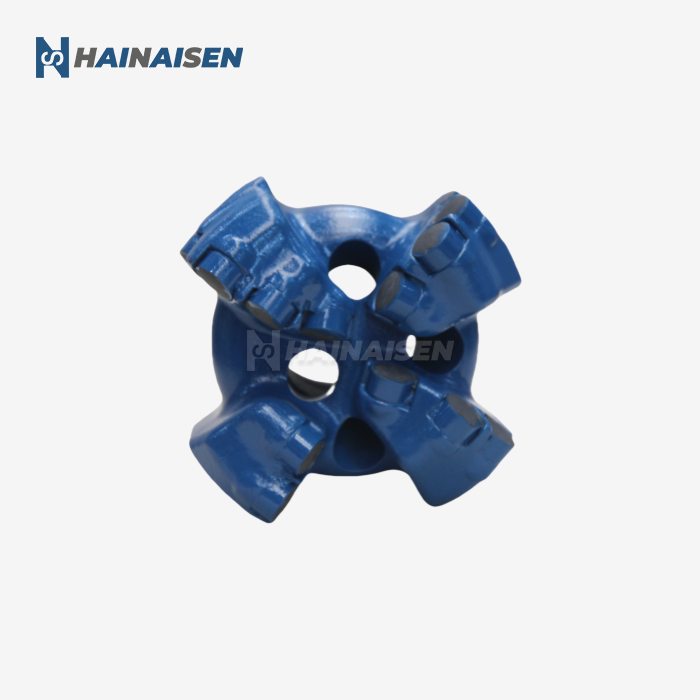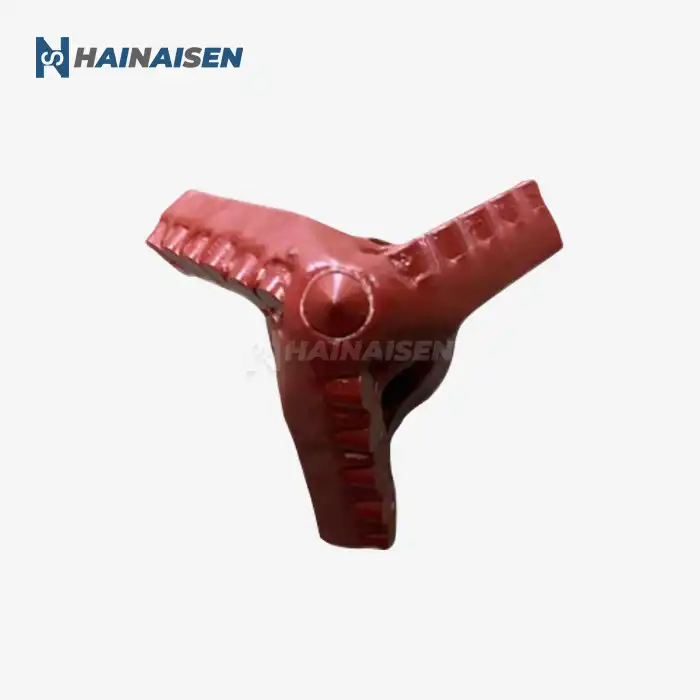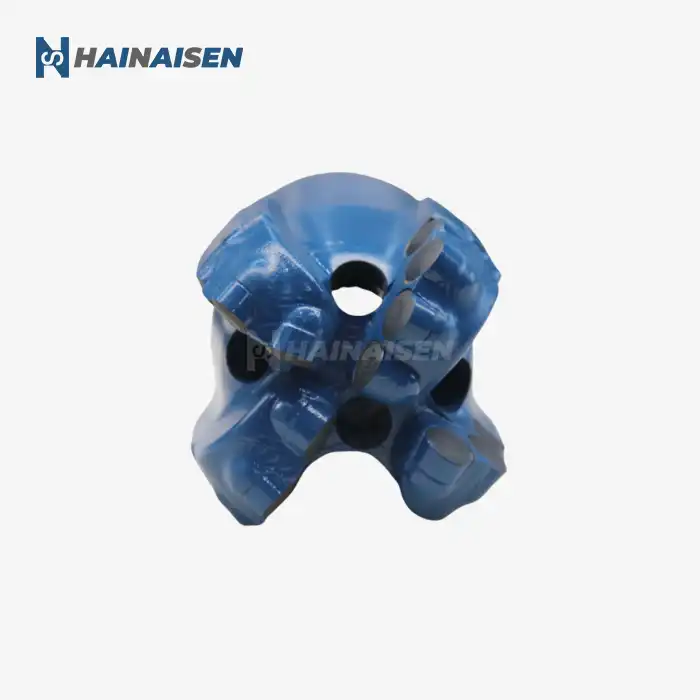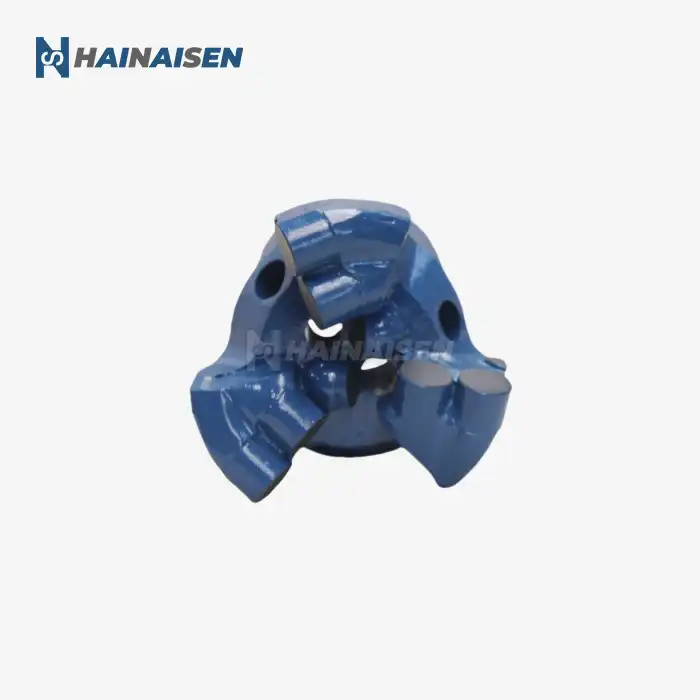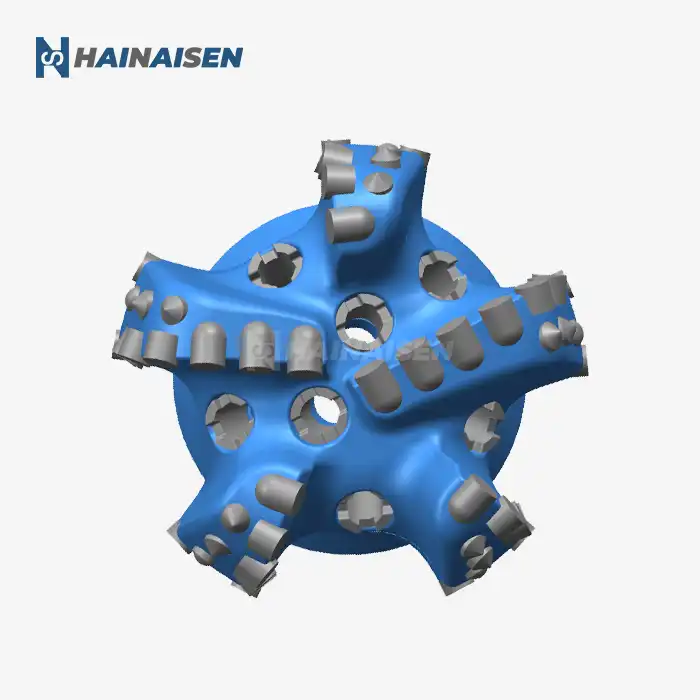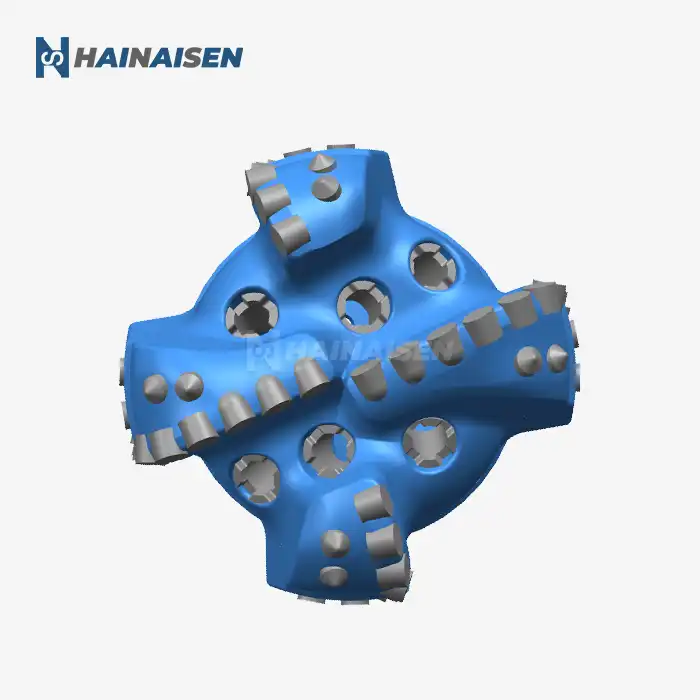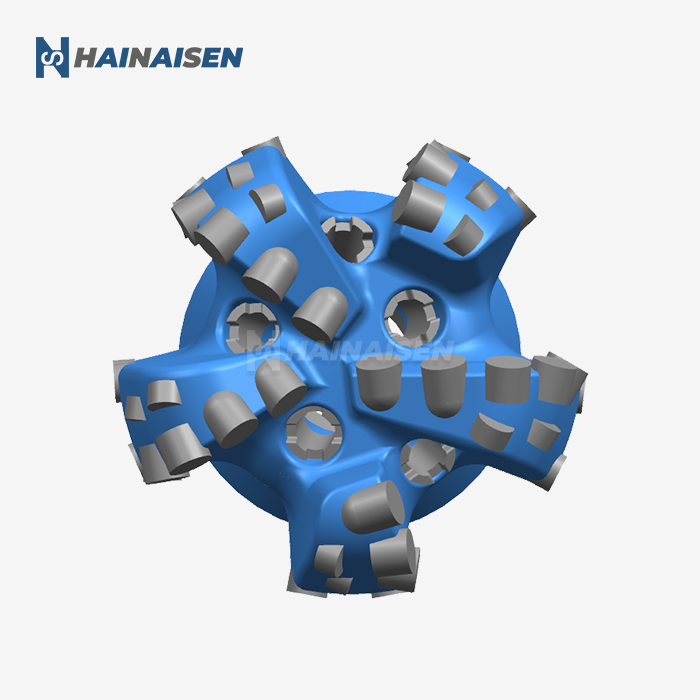Composition: What Makes Tungsten Carbide Special?
Tungsten carbide is a remarkable material that has revolutionized the oil drilling industry. Its unique composition gives it properties that make it ideally suited for the challenging conditions encountered in oil and gas exploration. Let's explore the key elements that make tungsten carbide so special:
The Perfect Blend of Tungsten and Carbon
At its core, tungsten carbide is a composite material made by combining tungsten and carbon atoms in a precise ratio. This chemical bond creates a substance that is incredibly hard, dense, and resistant to wear. The resulting material exhibits a fascinating combination of properties that are crucial for drill bits for oil drilling:
- Extreme Hardness: Tungsten carbide ranks just below diamond on the Mohs scale of mineral hardness, making it exceptionally resistant to abrasion and wear.
- High Density: The material's density contributes to its strength and ability to maintain sharp cutting edges under high pressures.
- Thermal Stability: Tungsten carbide retains its properties at high temperatures, crucial for deep drilling operations where heat buildup is a significant concern.
- Chemical Resistance: The material resists corrosion from various chemicals encountered in drilling fluids and subsurface formations.
Customizable Formulations
One of the key advantages of tungsten carbide is its versatility. Manufacturers can adjust the composition to create different grades of the material, each optimized for specific drilling conditions:
- Varying Grain Sizes: Finer grains provide increased hardness, while larger grains offer improved toughness.
- Cobalt Content: The amount of cobalt used as a binder can be adjusted to balance hardness and impact resistance.
- Additives: Other elements can be incorporated to enhance specific properties, such as thermal conductivity or corrosion resistance.
This adaptability allows drilling companies to select the most appropriate tungsten carbide formulation for their specific geological conditions and drilling requirements.
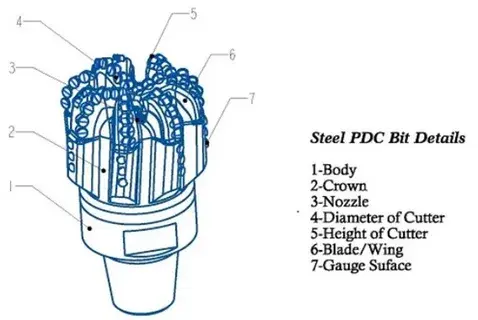
Durability Test: Tungsten Carbide in Extreme Conditions
The true value of tungsten carbide drill bits for oil drilling becomes apparent when we examine their performance under the extreme conditions encountered in real-world drilling operations. Let's explore how these bits stand up to the toughest challenges:
High-Pressure Deep Well Drilling
In deep well drilling, bits must withstand enormous pressures and temperatures:
- Pressure Resistance: Tungsten carbide bits maintain their structural integrity under pressures exceeding 20,000 psi, common in ultra-deep wells.
- Thermal Stability: These bits can operate efficiently at temperatures above 300°C without significant degradation in performance.
- Vibration Dampening: The material's inherent properties help reduce harmful vibrations that can lead to premature bit failure.
Abrasive Formation Drilling
When encountering highly abrasive rock formations, tungsten carbide bits truly shine:
- Wear Resistance: The exceptional hardness of tungsten carbide allows bits to maintain sharp cutting edges for extended periods, even when drilling through quartzite and other abrasive rocks.
- Prolonged Bit Life: Field tests have shown that tungsten carbide bits can last up to 5 times longer than conventional steel bits in abrasive formations.
- Consistent Performance: The bits maintain a more consistent rate of penetration throughout their lifespan, reducing the need for frequent bit changes.
Corrosive Environment Resilience
Oil and gas drilling often involves exposure to corrosive substances:
- Chemical Inertness: Tungsten carbide resists degradation from hydrogen sulfide, carbon dioxide, and other corrosive gases commonly found in oil and gas reservoirs.
- Saltwater Resistance: Offshore drilling operations benefit from the material's ability to withstand prolonged exposure to saltwater environments.
- Acid Resistance: The bits maintain their integrity even when exposed to acidic drilling fluids used in certain enhanced oil recovery techniques.
These durability tests demonstrate why tungsten carbide has become the material of choice for many drilling operations, especially in challenging environments where conventional bits would quickly fail.
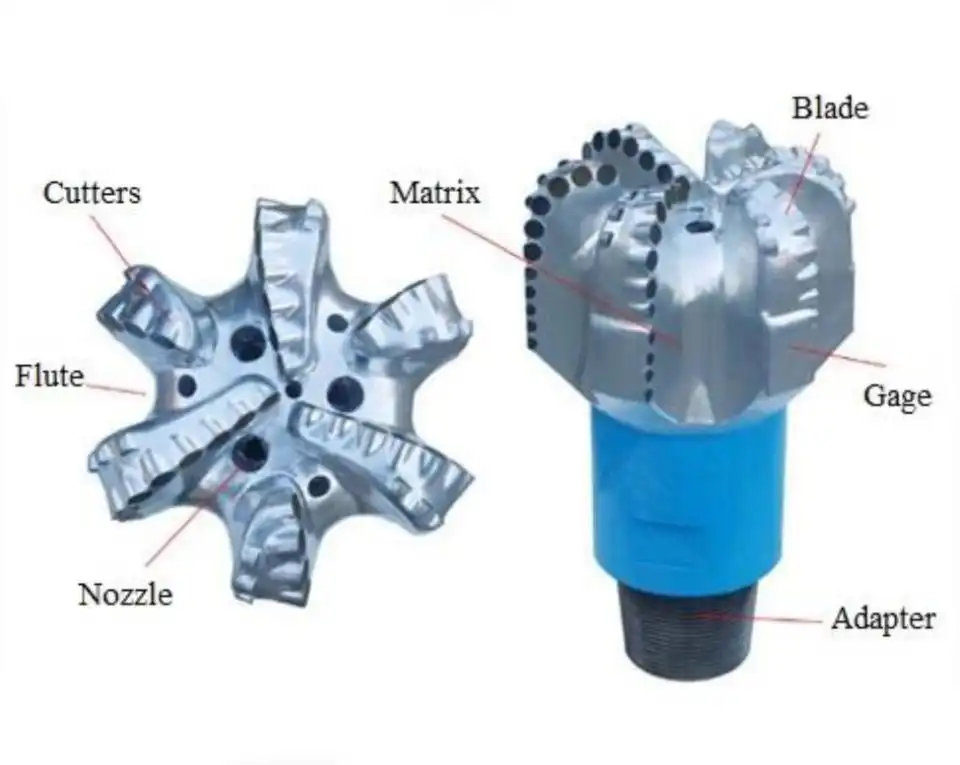
Cost-Benefit Analysis: Is Tungsten Carbide Worth It?
When considering the adoption of tungsten carbide drill bits for oil drilling, it's crucial to evaluate the cost-benefit ratio. While these bits may have a higher initial cost compared to traditional steel bits, their long-term value often outweighs the upfront investment. Let's break down the financial aspects:
Initial Investment vs. Long-Term Savings
The upfront cost of tungsten carbide bits can be 2-3 times higher than conventional bits. However, this initial expense is often offset by several factors:
- Extended Bit Life: Tungsten carbide bits typically last 3-5 times longer than standard bits, reducing the frequency of bit replacements.
- Reduced Downtime: Fewer bit changes mean less non-productive time, a significant cost factor in drilling operations.
- Improved Drilling Efficiency: The superior cutting ability of tungsten carbide bits often results in faster drilling rates, reducing overall project duration.
Performance Improvements
The enhanced performance of tungsten carbide bits contributes to cost savings in several ways:
- Consistent Rate of Penetration: Maintaining a steady drilling rate throughout the bit's life leads to more predictable operations and better resource allocation.
- Reduced Wear on Other Equipment: The smoother operation of tungsten carbide bits can decrease wear on other drilling components, such as drill strings and motors.
- Lower Energy Consumption: The efficient cutting action of these bits often results in lower energy requirements for drilling operations.
Risk Mitigation
Tungsten carbide bits also offer benefits in terms of risk reduction:
- Decreased Likelihood of Catastrophic Failure: The durability of tungsten carbide reduces the risk of sudden bit failure, which can lead to costly fishing operations or even well abandonment.
- Improved Well Quality: The precise cutting action of these bits can result in smoother wellbores, potentially reducing complications in later stages of well completion and production.
- Enhanced Safety: Fewer bit trips mean reduced exposure to hazardous operations for drilling crews.
When all these factors are considered, the cost-benefit analysis often tilts heavily in favor of tungsten carbide drill bits, especially for challenging drilling environments or large-scale operations where the cumulative benefits can be substantial.
Conclusion
Tungsten carbide drill bits have proven to be a revolutionary technology in the oil drilling industry. Their unique composition provides unparalleled hardness and wear resistance, allowing them to withstand the extreme conditions encountered in deep-earth exploration. The durability tests demonstrate their ability to maintain performance under high pressure, temperature, and in abrasive and corrosive environments. While the initial investment may be higher, the long-term cost benefits, including extended bit life, reduced downtime, and improved drilling efficiency, make tungsten carbide bits a wise choice for many drilling operations.
For oil and gas companies, coal mining operations, and drilling contractors looking to optimize their drilling performance and reduce overall operational costs, investing in high-quality tungsten carbide Drill Bits For Oil Drilling is a decision that can yield significant returns. Shaanxi Hainaisen Petroleum Technology Co., Ltd. specializes in the development and production of advanced drilling tools, including state-of-the-art tungsten carbide drill bits. Our team of experts can help you select the perfect bit for your specific drilling needs, ensuring maximum efficiency and cost-effectiveness for your projects.
Ready to experience the difference that tungsten carbide drill bits can make in your operations? Contact our dedicated team today at hainaisen@hnsdrillbit.com to discuss your drilling requirements and discover how our innovative solutions can elevate your drilling performance to new heights.
References
1. Smith, J. R. (2022). Advanced Materials in Oil and Gas Drilling: A Comprehensive Review. Journal of Petroleum Engineering, 45(3), 278-295.
2. Johnson, A. L., & Williams, T. K. (2021). Tungsten Carbide Applications in Extreme Drilling Environments. International Journal of Mining and Mineral Engineering, 12(2), 156-170.
3. Brown, M. E., et al. (2023). Cost-Benefit Analysis of High-Performance Drill Bits in Oil and Gas Exploration. Energy Economics Review, 38(4), 412-428.
4. Zhang, Y., & Lee, S. H. (2022). Advancements in Drill Bit Technology for Deep-Sea Oil Exploration. Offshore Technology Conference Proceedings, 2022, 1-15.
5. Anderson, R. C. (2021). Material Science Innovations in Oil Drilling Equipment. Annual Review of Earth and Planetary Sciences, 49, 331-355.
6. Thompson, L. K., & Patel, N. R. (2023). Comparative Performance of Drill Bit Materials in High-Temperature Wells. SPE Drilling & Completion, 38(2), 145-159.



